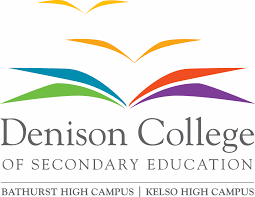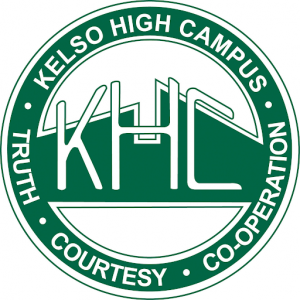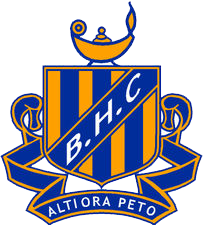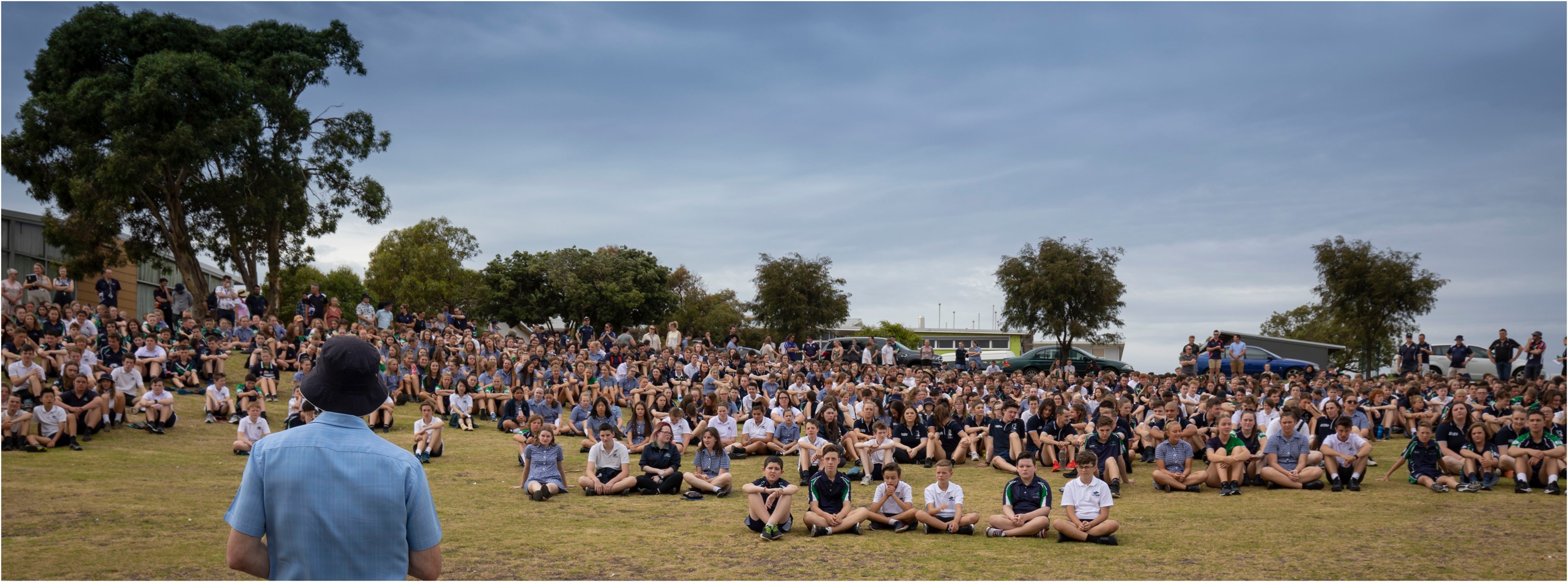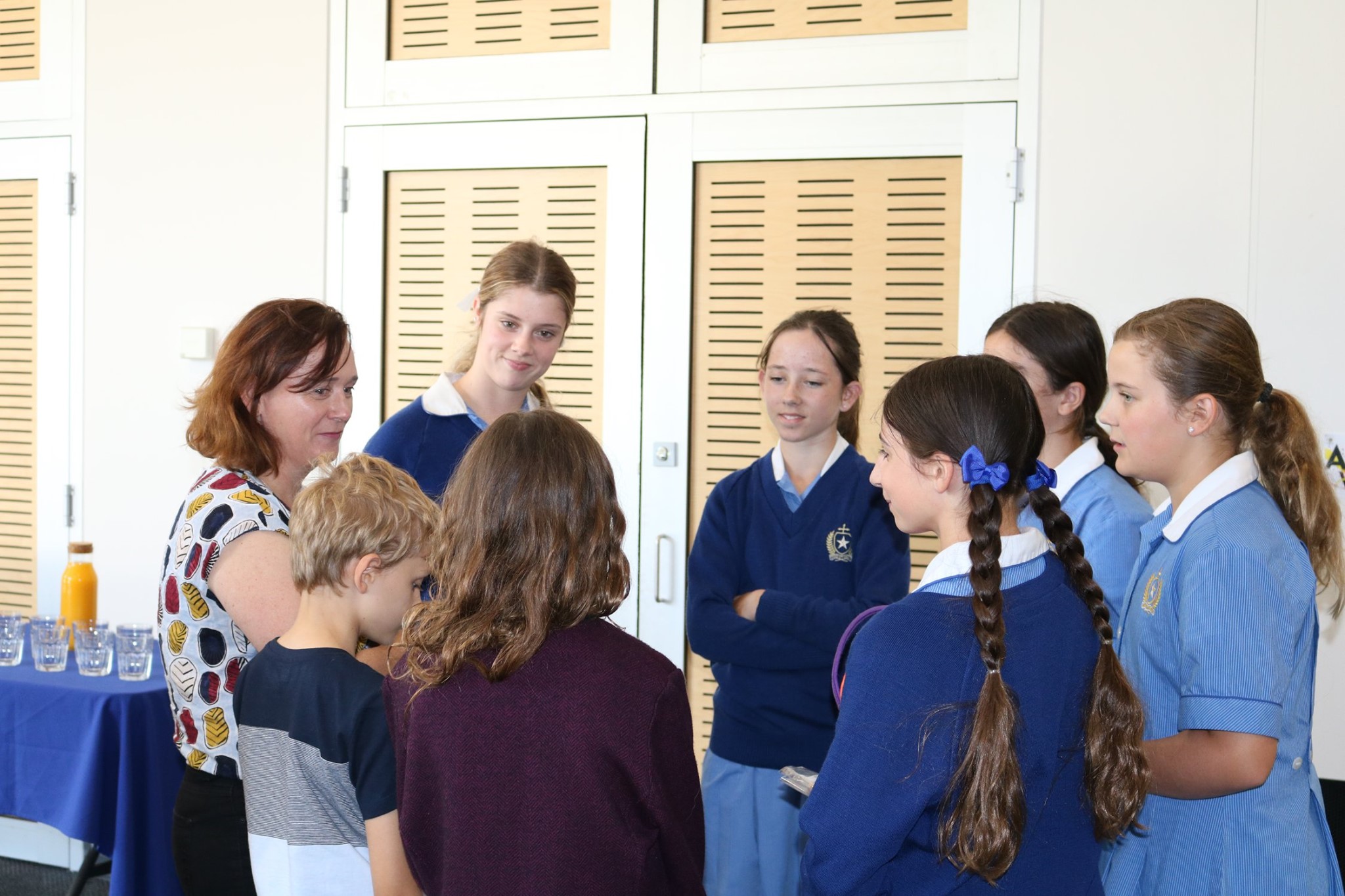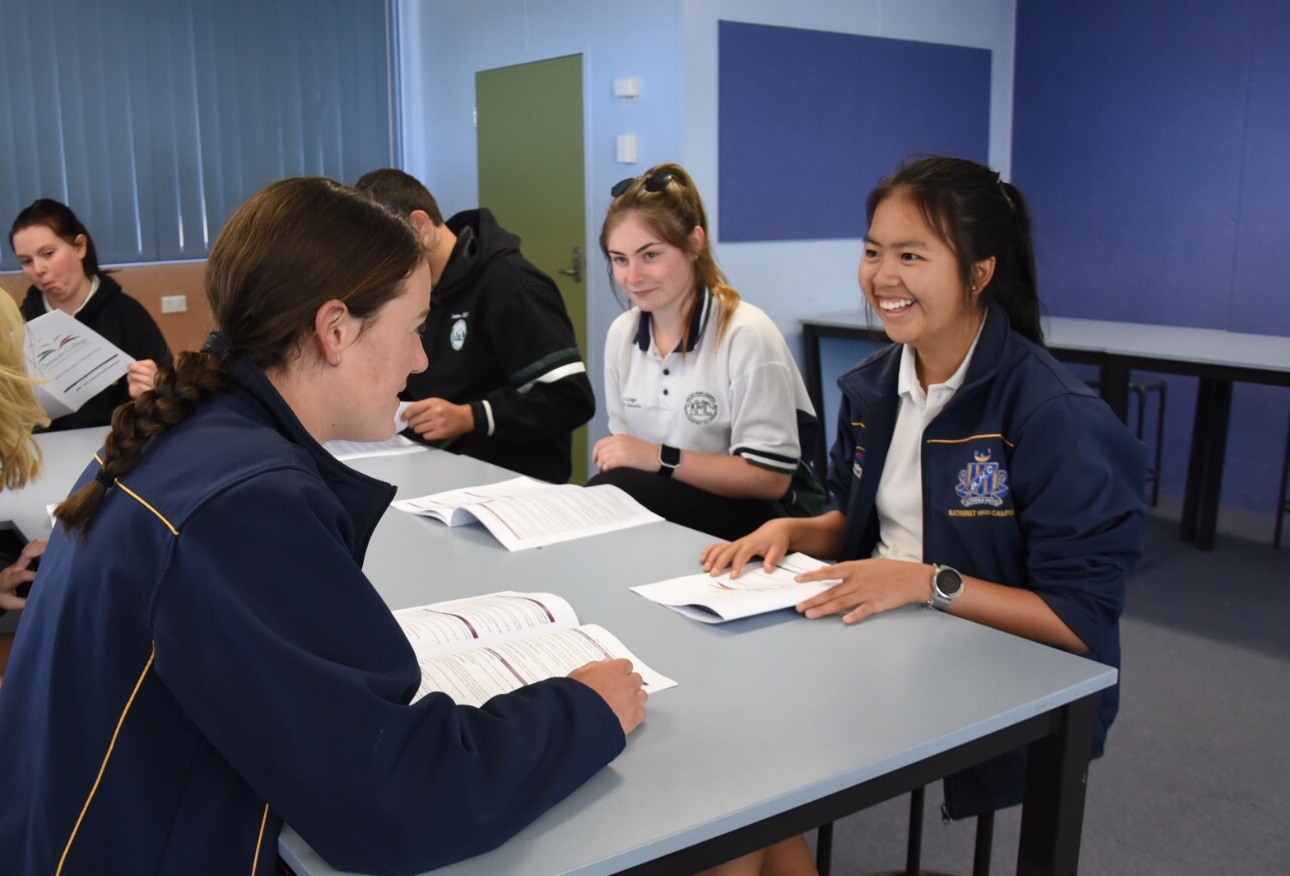
Denison College – Shared Elective Lines
Shared Elective Lines
NSW Department of Education Denison College of Secondary Education in Bathurst is a unique multi-campus structure and due to the breadth of curriculum offered requires innovative timetabling structures to enable students to access their preferred method of study across shared campus lines. As a result of collaboration with leading timetabling company Edval Education, the College is now able to provide a broad curriculum with equal opportunities for students, an improved use of resources and better balanced classes for improved teacher workload. Denison College of Secondary Education was established in 2007, when Bathurst High School and Kelso High School amalgamated to form a year 7 to 12 dual campus college.
The college is unique among NSW Public School colleges in that it has incorporated the strengths of the college model whilst maintaining the individual identities, history and culture of the Bathurst and Kelso campuses. The college adds value to the campuses through an innovative, deliberate and consistent approach to school excellence. A college approach to strategic planning provides a consistent standard of excellence in teaching, learning and leadership at both campuses which is enhanced through targeted cross-campus collaboration. By combining resources and working collaboratively, targeted cross-campus opportunities for students are maximised, adding to the students’ campus experiences. One of the most obvious benefits of the college is being able to offer a shared senior curriculum and, in particular, shared courses. Three of the seven lines are shared, enabling a student from either campus to study courses at either their home or sister campus. This shared curriculum has been the flagship of the college since its inception, allowing a broad senior curriculum.
The adoption of Edval’s specially designed Shared Lines feature has had a significant impact on student subject selections for Year 11, 2020. Moving from two campus timetables to one Denison College timetable using Edval software (especially the shared lines feature), has meant that more students than ever before are receiving their subject preferences. Compared to shared lines organised for 2019, 90 students in Year 11 will be accessing shared courses in 2020, seeing an increase of 220% through Edval’s exciting feature. These 90 Year 11 students will be joining the 28 Year 12 students already studying shared courses.
Edval’s association with Denison College
Kelso High Campus adopted Edval as their timetabling system provider in 2014, with Bathurst High Campus joining Edval several years later. Both campuses were initially software only clients. Having come from a legacy of old timetabling practices, Kelso High Campus began utilizing Edval’s consultancy service in 2017 to ensure that timetabling practices maximised the implementation of priorities in their School Plan. One focus included enhanced teaching and learning in Year 8 through collaborative practice. Edval demonstrated that by allowing double periods and creating flexibility, one meeting per cycle for five teams of Year 8 teachers could be timetabled online (rather than before or after school) without compromising curriculum delivery, through too many splits for example.
In 2019, Bathurst High Campus contracted Edval’s Timetabler-In-Residence program. This advanced service has Edval staff physically seconded to the school, attend some senior leadership meetings, and are regarded as the main timetabler for the school under the direction of the principal, but employed and provided by Edval.
The College is currently engaging with Edval in the development of their Next Generation timetabling module to be released in 2020, which provides new innovative tools such as the shared lines function, as well as others. With Edval’s advice, several areas of significant change has occurred, to the benefit of the college.
Challenges
Whilst, over the years, Denison College has enabled many students to thrive, the college faced several challenges including an inability to offer the curriculum diversity their students wanted to study in an efficient manner. There was some complexities around sharing courses between both campuses, limited timetabling expertise and legacy timetabling software.
In essence, the College was large, and despite the best intentions, was losing much opportunity due to inefficient practices and use of resources. Following a review of the college curriculum in 2018, the development of an improved shared line formation and timetabling process was prioritized in order to maximize student options and improve efficiency and the college has engaged Edval’s professional guidance in an extensive way.
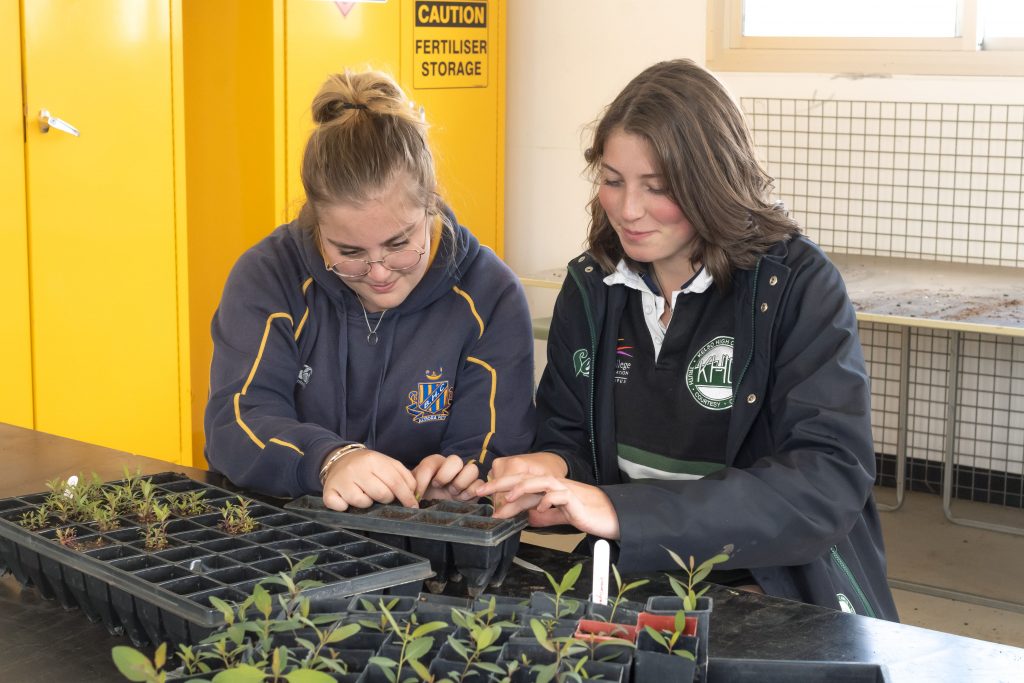
Manual Shared Lines
There have been many changes due to Edval’s consulting, but the single largest area of interest has been the shared lines. The formation of shared lines requires both campuses to join together to collaboratively determine which courses they want to offer on the shared lines. These are specifically designated at times that suit bus travel. The college funds a bus to transport the students during the Recess/Lunch breaks in a 15 minute journey each way. The traditional approach to the formation of shared lines was highly manual and time consuming with a focus on how many students wanted each subject rather than students’ priority for subjects. Without dedicated technology to support the process, line formation required a lot of input from non-timetablers and senior executive staff from both campuses meeting on a number of occasions over a number of weeks.
Data was communicated and manipulated via a whiteboard and on paper to determine which subjects would run on shared lines and at which campus. Students were only offered places in subjects at the other campus if the class was not full and if the campus determined that the subject was best placed on a shared line considering their own resources. The process resulted in a small number of students accessing courses they would not otherwise have access to.
The original model saw shared lines operating four days per week, however, as a result of Edval’s suggestion, the college changed to the sequential alignment of shared lines in 2018 which significantly reduced the expense of the bus and has resulted in students moving on only two days per week. This model also provides each campus with more flexibility to run campus specific programs on other days of the week without causing disruption to shared courses.
Edval’s Shared Line Feature
Edval developed a new software module to specifically generate shared line solutions. This is where all students were assumed to want courses at their home campus, but if they could not get a local request, they would be considered for it on the sister campus as a fallback. In particular, only the designated number of lines could be shared in this fashion, due to bus limitations and expense. Edval’s algorithms were set to optimise which courses were best shared, which shared line they should go on, and which students should travel by bus to access their courses, all while keeping bus numbers within the stated bus capacity. When this new technology was applied to the problem, it was quickly seen as a game-changer.
Super-fast generation. Complete solutions were produced instantly, when it would otherwise take days or even weeks to generate full shared-line solutions via the old method.
Visibility of solutions. Previously it was very difficult to know which students would likely attend courses at the sister campus, or what class sizes may be. Calculations were difficult, laborious, and error prone. Now, Edval produces reports that instantly show accurate class sizes, which students are travelling, and how many students are on each leg of the bus journey, which is eight separate trips. This visibility is excellent for resource management, and also for senior leadership having oversight on what the impact is on courses and which students are affected. By being able to analyse any number of what-if-scenarios, the College is far better equipped to determine best use of their resources.
Increased access to courses: The percentage of students enrolled in a course at their sister campus was significantly higher than before. By generating the lines with algorithms determining which subjects to share, and place on shared lines, students have far more access to more courses. Nearly 40% more courses were granted to students at a sister campus, than they would have otherwise not been able to study, before Edval’s new feature. This means that in 2020 students engaging in shared courses has increased by 220%. The significant increase in ability to grant desired courses is attractive to parents and students.
Bus Savings: Edval first suggested changes to the sequential alignment of shared lines, which instantly reduced the bus expense by nearly half. Then, with Edval’s shared line feature, the bus capacity was increased to nearly full capacity. This means the cost-per-pupil on the bus was greatly reduced, i.e. the bus was more efficient. The College may even need to consider hiring a larger bus in future, as a direct result of Edval’s smart algorithms. Originally the bus ran over four days a week, but with Edval’s advice this was reduced to only two days a week by doubling the shared courses on the two days. The bus now costs the college around $16000 pa, which is a significant saving compared to when it was running the extra two days a week. With larger numbers of students studying at the sister campus more students will also now be travelling with their friendship groups. Under the previous model, the college found that significant numbers of students were prepared to compromise their pattern of study if they did not have friends to travel with.
Double move benefits: Edval’s tool provides control on the number of student movements, which allows e.g. granting sister courses if the subject is a high preference, as students may not be as willing to travel for their low level preference subjects. It also prioritised students slightly if they could be granted two courses at the other campus. So in a case where one student could get two sister courses, or two students get one (with all else equal), the bias was towards one student having two. An additional benefit of this approach is the greater social contact at the sister campus, as these students then have a break there as well, and greater access to their teachers and peers by being more connected with the sister campus.
This also results in a significant reduction of bus travel numbers, and also a reduction in time for the students to travel. One student taking two courses is more efficient than two students taking one, as it’s half the bus travel. It’s not quite so easy to show an either or arrangement, but in general, Edval maximised the use of the bus, and also reduced the movement of the students. A win-win.
Interaction with current staffing: Previously, shared lines would be discussed and agreed with very limited visibility of impact on other areas of the school. It was not uncommon to have a solution signed off, only to discover that the arrangement would not work, as the only Dance teacher was already teaching Yr12 at that time, so the proposed shared Dance class in Yr11 was impossible – as while it may have been known, such instances are easily missed when generating solutions manually. Edval’s shared line tool allows all the Yr11 lines to be generated for both campuses together. It determines the best fit for all students, manages the student movement / bus capacity, but ALSO does so with respect to Yr12 lines too. The Yr11 Shared lines are essentially timetabled around existing known staffing for Yr12 classes that carry forward as a two year course. This is doing two years from separate campuses, around two years from separate campuses. It sounds complex and is, but Edval made the process easy, and managed it without human error that was common before.
Shared lines determined much earlier: Because Edval makes the process so easy, the college was able to determine student results much earlier than before, and with more confidence.
Results - Bus Movements
The table below shows the total number of students who are travelling between campuses by bus, in order to access a course they really want to study. Note that Denison could easily allocate many more students, but not all want to travel, or are permitted to travel. As such, the numbers below reflect students who are sufficiently motivated to spend some of their free time travelling, to access important courses to them. The bus capacity is approximately 55 students. Prior to using Edval’s new Shared lines feature, there were a total of 68 students travelling. After using Edval, in the subsequent year, there will be 107 students travelling, an increase of 39 students, which is around 36% better. The cost of the bus is approximately $16000 pa, so the new feature developed by Edval with the college, has brought the cost of the bus ‘per pupil’ down from around $235 per student/year, down to $150 pa, which is a saving of around $86 per pupil. The total number of students travelling is now basically at the bus full capacity (up from around 62%). This means the bus is far more efficient, as there are now 39 more students on board overall, for the same expenditure in the bus hire, fuel, and use of carbon.
Schools are increasingly seen as a vehicle for environmental change, as young students globally are very aware of the impact global warming has, after Greta Thunberg, as a 15yo student, began a movement and became one of the 100 most influential people in the world – in relation to her school strike activision. As a result of incredible exposure and publicity, a large number of schools are now supportive of school activism for environmental activity. That the Denison College bus is nearly 40% more environmentally efficient due to the increase in student numbers is worth noting, as a happy byproduct of more efficient use of the college resources. The cost per student has also been significantly reduced, with the bus expenses spread over more students. Quite apart from the cost and environmental benefits, it should be noted that the single largest benefit to the college, and to the students, is a very significant increase in course selection. All the Denison students now have access to a wider range of courses. The college has the largest senior curriculum offering of any school in the region by virtue of its size and the collaboration between the campuses with regard to curriculum.
| Bus trip | Students | Difference | Cost/Pupil | Bus Capacity |
| Kelso to Bathurst | 33 | 60% | ||
| Bathurst to Kelso | 35 | 64% | ||
| Total 2019 | 68 | $235 | 62% | |
| Kelso to Bathurst | 55 | 22 | 100% | |
| Bathurst to Kelso | 52 | 17 | 95% | |
| Total 2020 | 107 | 39 | $150 | 97.5% |
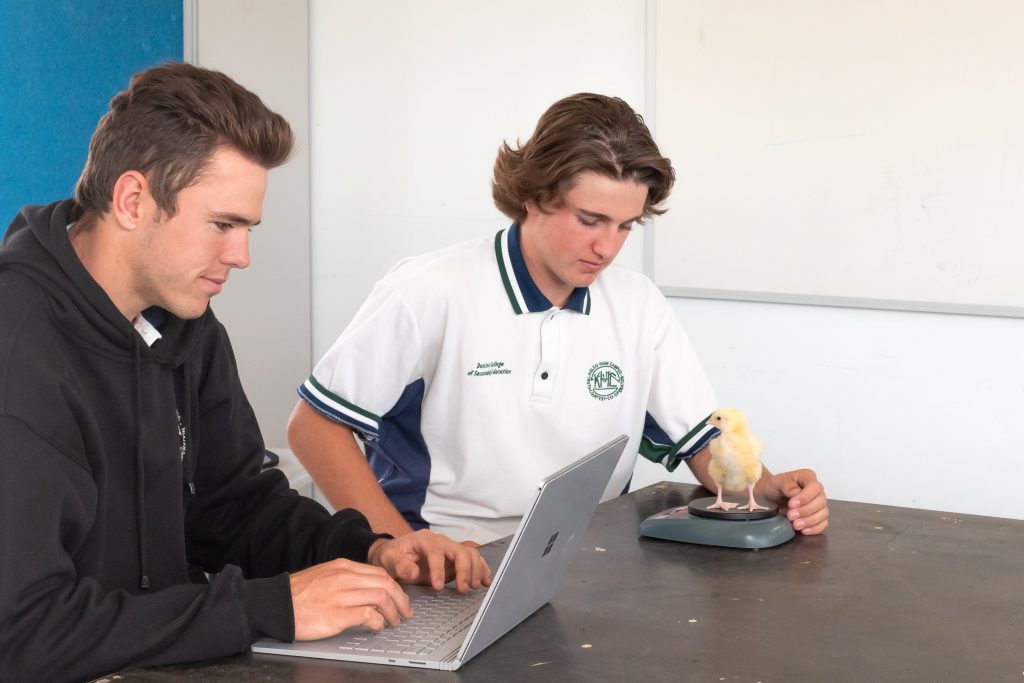
Class Sizes
Class sizes overall and across all lines have increased to healthier numbers, as a result of using Edval’s Next Generation software. Previously there were several courses with marginal class numbers, which is difficult for the college to justify funding, and can draw resources away from other areas that may impact more students. This is not just an increase in the size of the classes on the shared lines. Because there are more shared courses and more students in shared courses, more students have been granted the subjects that wanted without the need for the campuses to run an increased number of courses and hence classes with smaller class sizes. This is a significant school improvement. Not only in the saving in staffing, but also in the ability of teachers to effectively teach the class, and have appropriate peer support and interest. When classes are too small, it becomes more difficult to engage in group work. The Edval Next Generation timetabling software has made a very significant impact in healthy class sizes. This should lead to happier students and better quality teaching. It’s easier to allocate the very best teachers to a class that has so many students, where sometimes for smaller classes, a school may allocate some key staff to more junior courses, in order to maximise the number of students who have contact with them. It’s never easy juggling resources in a complex school timetable, but the healthier class sizes certainly give Denison College a far greater ability to manage the delivery of Education effectively. As a result of the Edval Shared Lines tools, Denison College was able to run two classes fewer than the previous year, while also satisfying a lot more students than ever before. The two classes fewer equates to approximately $40k saving in staffing.
Staffing
Edval’s Next Generation tools take into consideration the staff and room requirements of each course. The algorithms shuffle them around for best fit. This allowed the college to obtain not only the best result for students, in access to their desired courses, but also to ‘fit’ the staff who are needed for these courses. It enabled a better matching of some key staff to classes that they may have otherwise been unable to take, due to the prior method of generating shared lines manually. The difficulty of this previous laborious process meant that some arrangements that best suited staff were not able to be accommodated as effectively. Some of the staff at Denison work part time, and this can cause additional complexity in scheduling. Fortunately, Edval’s new method takes into account the staff availability, so the results generated were able to be staffed effectively, in ways the college desired, even in the case of part timer staff with less flexibility in the days they work .
Conclusion
Edval’s Next Generation timetabling module is due to be officially released in 2020. This new tool and ongoing consulting advice is a significant edge in helping the college reinvigorate its position as an innovative educational institution, making better use of resources, while also offering students greater choice in their study opportunities. The college has found the ongoing savings Edval delivers each year in many areas – staffing, busses, enrolment numbers, covers etc to be significant. It has covered the costs for Edval’s technology and consulting, yet the real benefits are far more in the improved quality of education it is able to deliver to it’s students. In addition, the model of sharing courses to this level is very innovative, and now that Edval has technology that can so conclusively address the needs in this area, it may be worth schools consider this arrangement, when they had not previously.
Key Case Study Contacts
Sandra Howarth (Main project contact)
Head Teacher Admin: Denison College – Kelso High Campus
Phone: +612 6331 4544 | Mobile: +61 428 650 634
Nicholas Williams
Deputy Principal | Bathurst High Campus
+612 6331 3755 | M +614 59 882 819
nicholas.williams59@det.nsw.edu.au
Mick Sloan
R/Principal, Denison College
